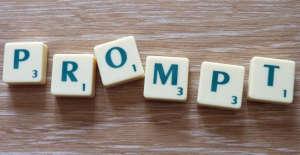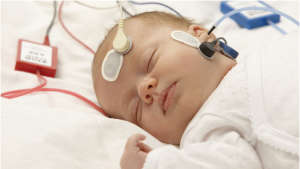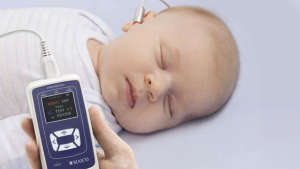What To Do When My Child Has Hearing Loss

After going through hearing tests after hearing tests to confirm if indeed my child has hearing loss, what do I now?
The answer really is up to you. But we hope that you act as soon as possible, and amplify your child accordingly. Here are some tips we can impart with you based on our own experience after finding out Johann has moderate to severe hearing loss.

Next Action Steps to Take
- Determine your child's level of hearing loss. After your ABR/ASSR you should have a fairly good idea of how much hearing loss you're dealing with. A mild to moderate hearing loss would benefit from a good pair of hearing aids, while a severe to profound hearing loss would need cochlear implants.
- Select your amplification device. Whether a hearing aid or cochlear implant has been recommended to your by your ENT, you can do your research on which will be best for you depending on your considerations. Level of power, maintenance options, and budget are some factors that we have laid down.
- Start your speech therapy. Once amplified with hearing aids, Johann started going to auditory verbal therapy or AVT by 7-months. Babies don't speak yet when they are born but when they don't hear the sounds that will serve as their foundation in imitating and producing those sounds at around 2 years old, that will pose a problem. Granted that each child is unique and follow their own developmental milestones, children with hearing loss need a boost and that's what AVT will help with - speech development. Even after getting a cochlear implant later on, Johann continuously get his AVT to aid him with hearing and speech development.
- Monitor your hearing loss levels. At the start of your journey and as your baby grows you will need to monitor your hearing loss levels more frequently. There are chances that it will develop and return to normal. But there are also instances that it progresses to a level your child can no longer hear. Either one, because your baby is growing, you need to monitor. We started with monthly tests, then quarterly, then semi-annual to annual. Later on this is how we figured out that Johann's hearing loss was progressing from moderate to severe to profound.
- Learn what you can.As your child grows up, you also grow up. That is why we chose to learn and equip ourselves on the best options, best procedures, best services we can get for our child, so that we give them the best chances to hear better.
- Find support.You are not alone in this journey. Find other families in a similar boat, or rally up your entire family for your child. There is collective wisdom and support available for you and your child, just be open to it.
- Advocate for your child.You will be your child's best bet in their journey to hearing better. You will be interacting a lot with doctors, audiologists, therapists, schools, even extended families, and who better believe in your child than you?
And yes, it will not all be clear at once, but we here at Project Ephphatha pray for your enlightenment as you journey with your child to hearing better.



